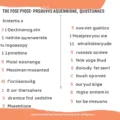Martin Seligman is a name that echoes through the halls of psychology with a particularly positive note. As the founding father of positive psychology, Seligman has redefined the scientific study of what makes life most worth living. In this comprehensive article, we delve into the life and contributions of Martin Seligman, exploring the profound impact his work has had on the field of psychology and beyond.
Early Life and Career
Martin E.P. Seligman was born on August 12, 1942, in Albany, New York. He pursued his bachelor’s degree in philosophy at Princeton University and later obtained a Ph.D. in psychology from the University of Pennsylvania. It was here that Seligman’s interest in human motivation and behavior took root.
Learned Helplessness Theory
Early in his career, Seligman’s research on ‘learned helplessness’ gained widespread recognition. The theory, which he developed after conducting experiments on animals, suggests that individuals may learn to believe they have no control over their situation and thus may give up trying to change or escape it, even when opportunities exist.
The Birth of Positive Psychology
In the late 1990s, Martin Seligman introduced the concept of positive psychology, a field of study that focuses on human strengths and virtues, rather than on mental illness. This revolutionary approach shifted the traditional focus of psychology from solely treating pathology to fostering well-being and happiness.
Key Contributions and Publications
Throughout his career, Seligman has written extensively on topics related to positive psychology. His seminal works include ‘Authentic Happiness’ and ‘Flourish,’ which outline his theories on well-being and provide practical advice on how to live a fulfilling life.
Legacy and Influence
Seligman’s work has had a profound influence on both psychology and the broader cultural zeitgeist. His concepts have been applied in various fields, including education, health care, and organizational leadership, helping individuals and institutions to adopt more positive practices.
FAQ About Martin Seligman
What is Martin Seligman best known for?
Martin Seligman is best known for founding the field of positive psychology and for his research on learned helplessness.
What is positive psychology?
Positive psychology is a branch of psychology that studies the strengths and virtues that enable individuals and communities to thrive.
How has Seligman’s work impacted modern psychology?
Seligman’s work has shifted the focus of psychology towards understanding and cultivating human flourishing and well-being.
Can positive psychology help with depression?
Yes, positive psychology offers strategies and interventions that can complement traditional treatments for depression, focusing on building positivity and resilience.
What are some key practices recommended by Seligman?
Seligman recommends practices such as gratitude journaling, identifying and using personal strengths, and nurturing positive relationships to enhance well-being.









